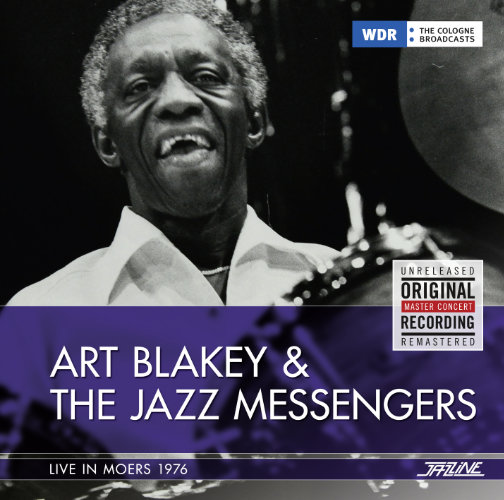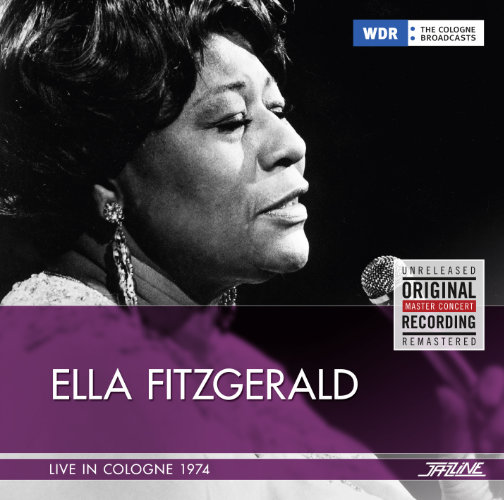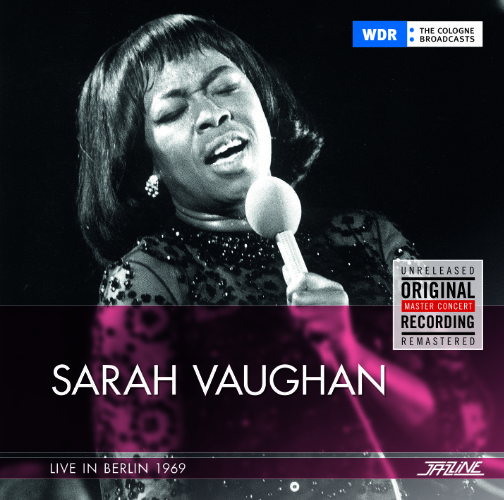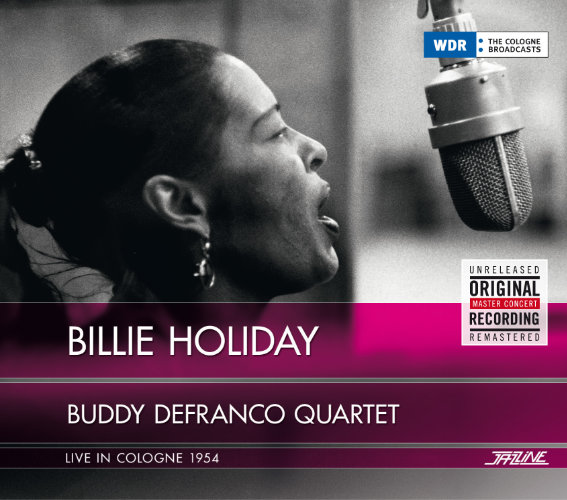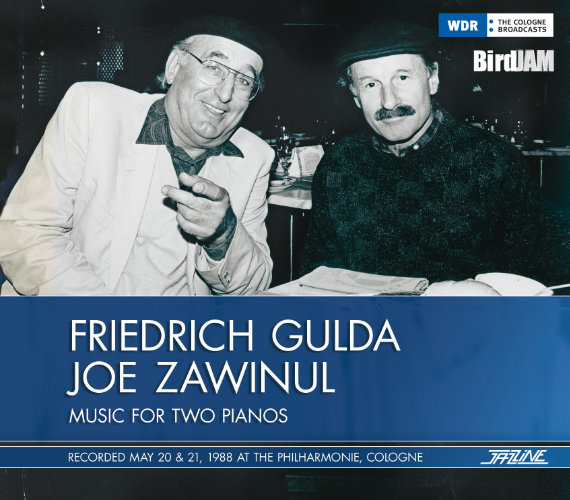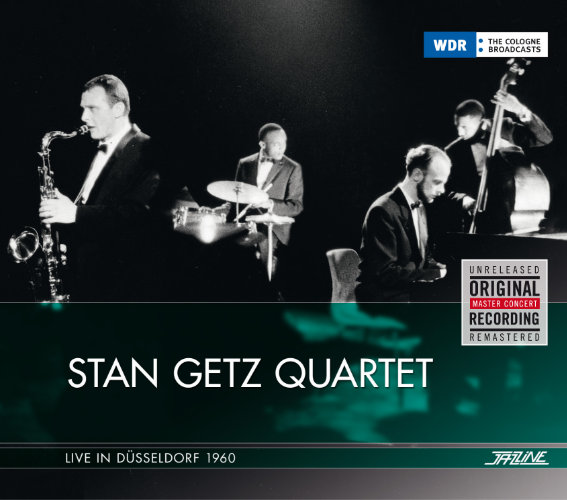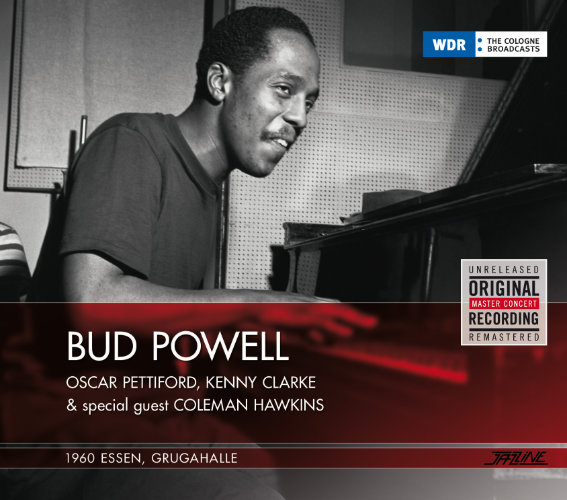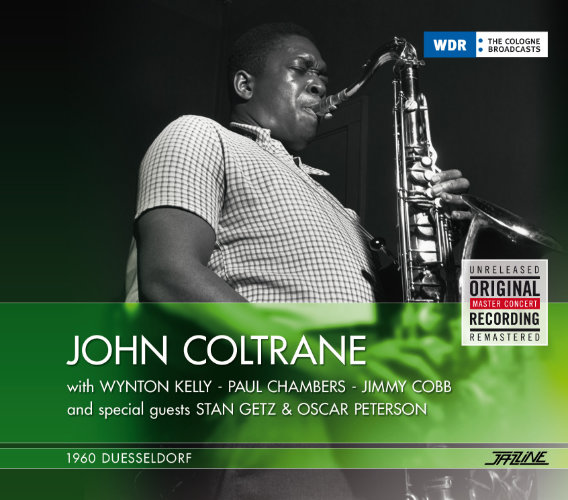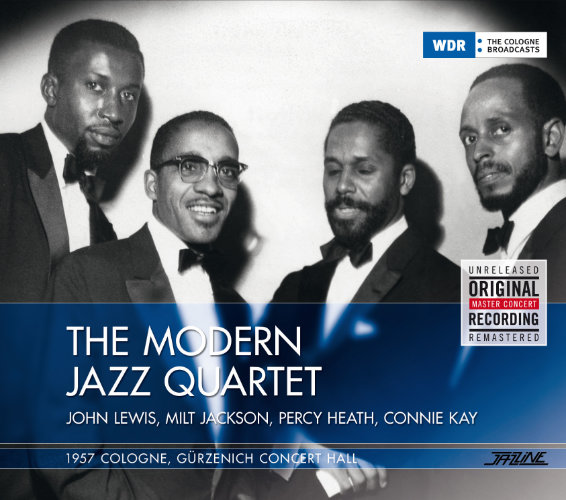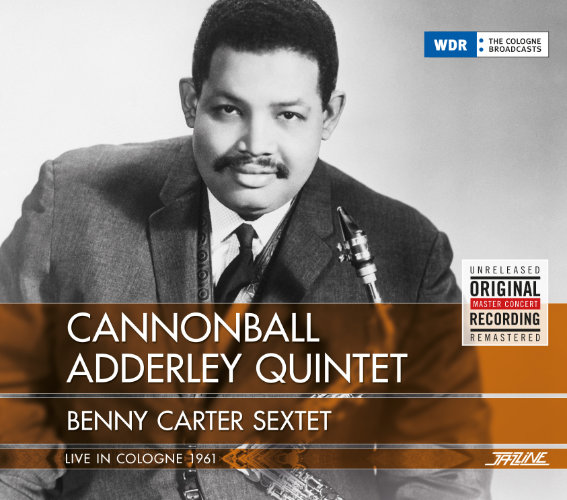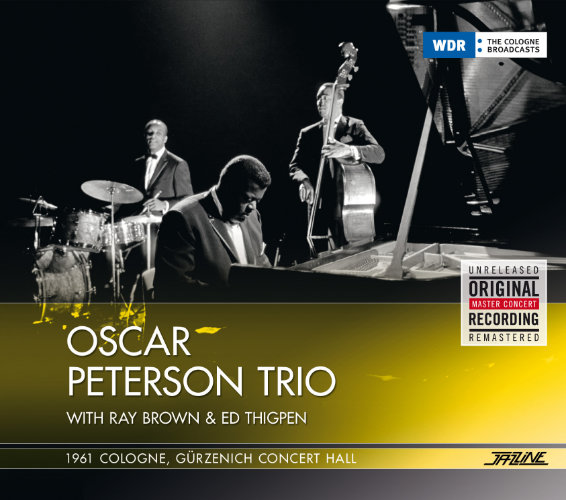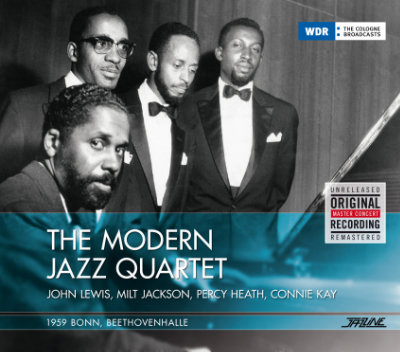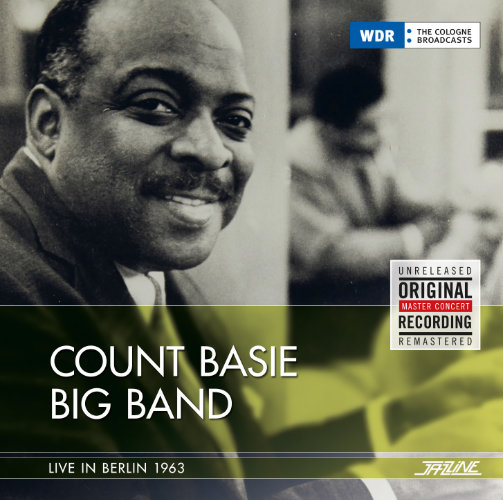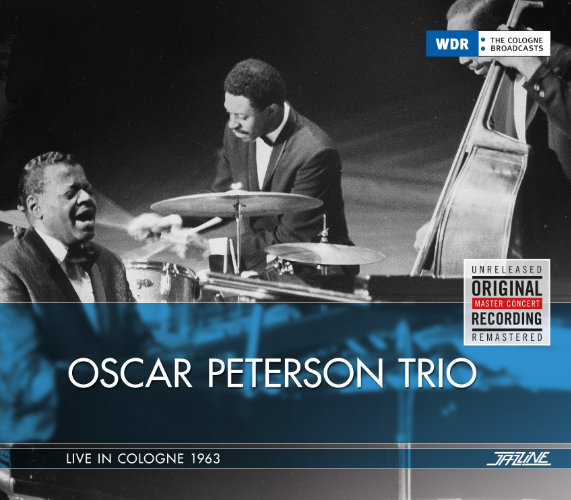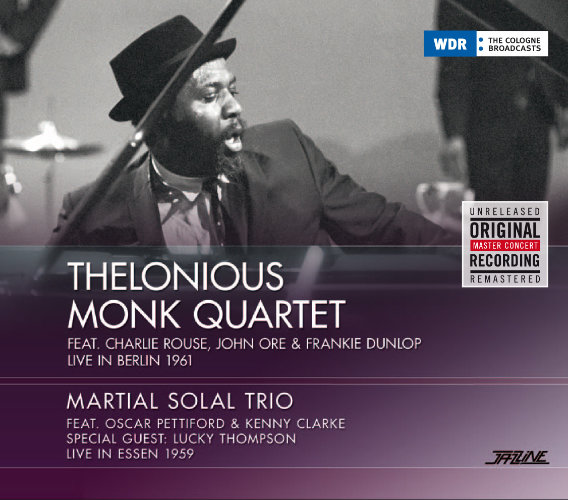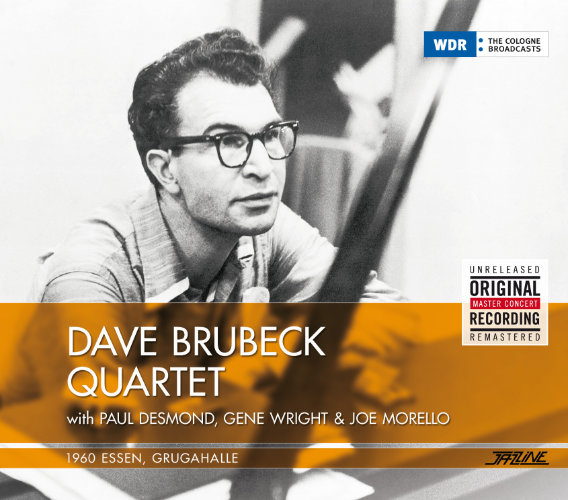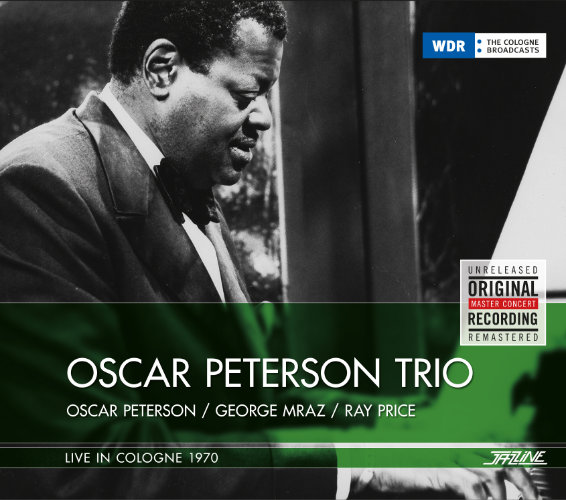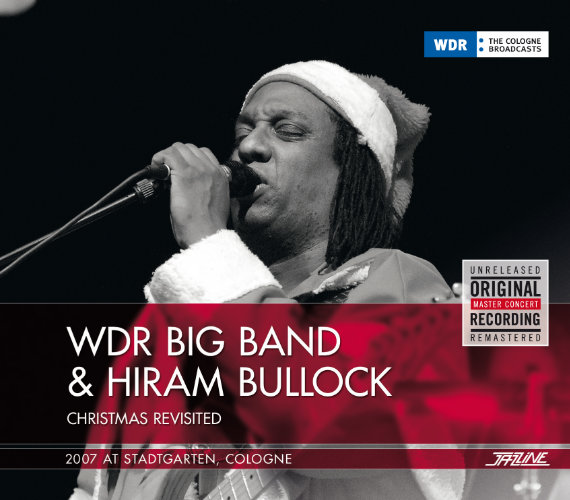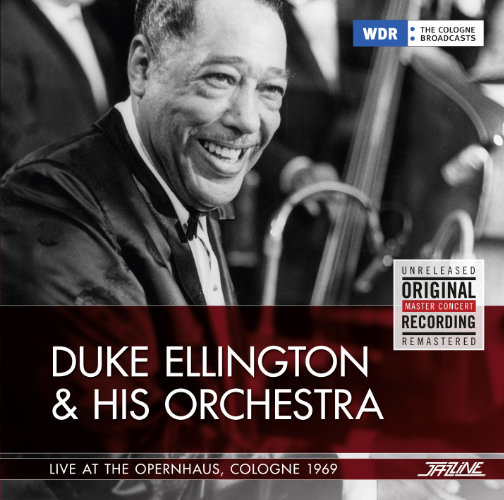1959 BONN, BEETHOVENHALLE
“I replied, slowly getting concerned that, after five years of drawing room jazz from the 18th Century, I no longer would be able to play the drums again the way I wanted to.“
This was the reaction of the first MJQ's drummer, Kenny Clarke, to the request of John Lewis to stay in the band. He increasingly regarded this discreetly swinging chamber ensemble as a corset, which only strengthened his long cherished wish to leave America. Lewis tried to hold him with luring fees - in vain. With Connie Kay as a successor the group would be constituted, without further personnel changes, and would survive for a quarter of a century.


